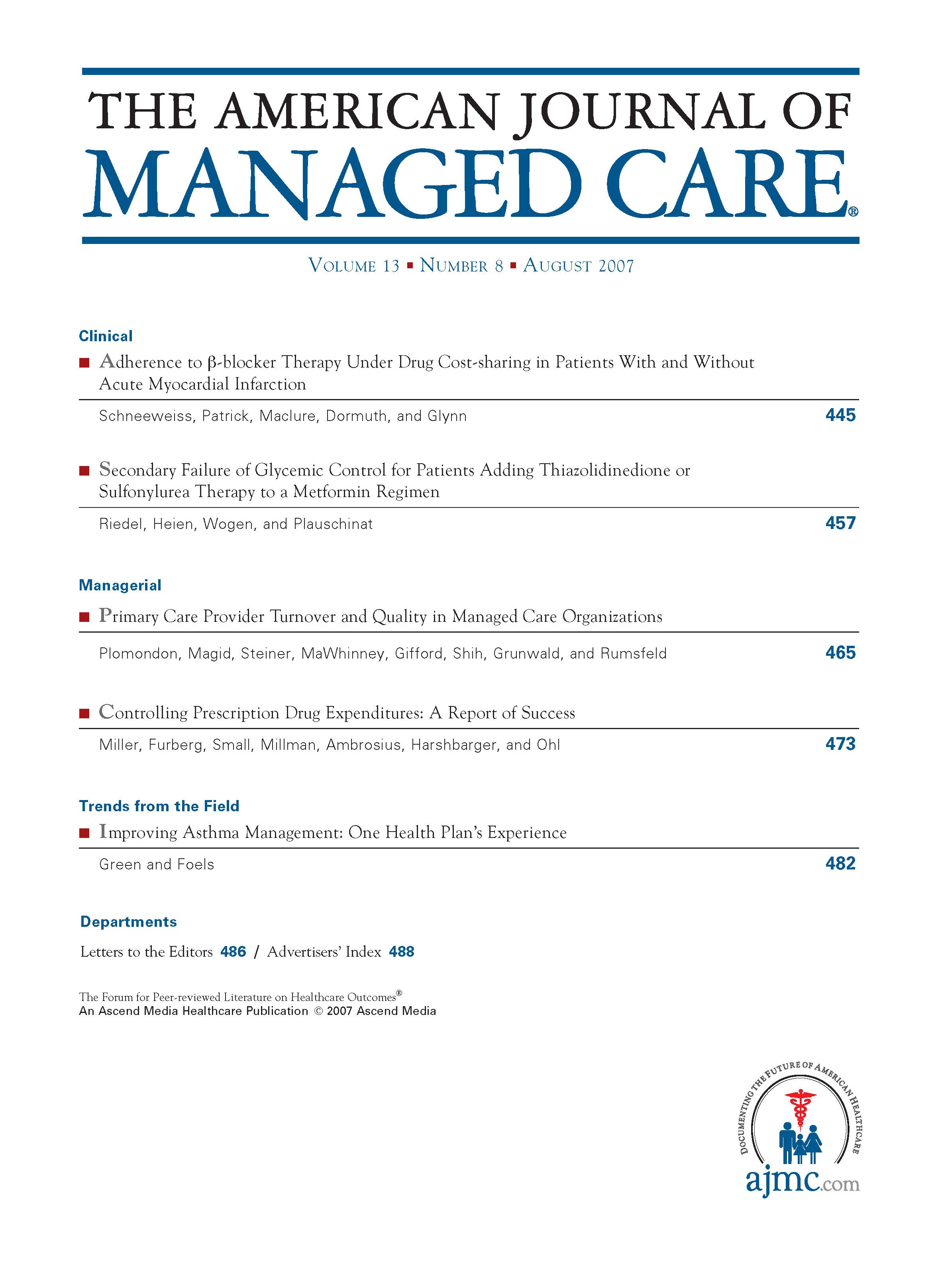- Center on Health Equity & Access
- Clinical
- Health Care Cost
- Health Care Delivery
- Insurance
- Policy
- Technology
- Value-Based Care
Scored Tablets Make Pill Splitting Easier
Regarding the article by Choe et al1 in the June issue of The American Journal of Managed Care, I would like to point out that the underlying problem is that the pricing of statins is generally not proportional to the dose (ie, “flat†pricing). In addition to that pricing structure is the lack of a score in these frequently titrated or dose-adjusted products. As a result, undesirable behavior, such as trying to split unscored and often irregularly shaped tablets, occurs. There is, however, a better scenario that would benefit all stakeholders.
Because of the medical benefits of easy dose titration/adjustment by breaking a tablet into a half dose to an optimal statin (or other medication) dose or to manage dose-related myalgias, patients and prescribers would benefit by having available scored tablets that are easily breakable into pharmaceutically acceptable half doses. Recognizing that many drug products in the United States and worldwide are priced proportionally to the dose, there is little doubt that such dosage forms can return acceptable profits to the manufacturer.
Scored tablets would not only benefit patients and prescribers, but insurers too, as they would not have to evaluate flat-priced medications and/or educate patients of varying ages and different levels of competence to split unscored tablets.
Lawrence Solomon, MDChairman and CEO
Plantation, Florida
Author Disclosure: Dr Solomon reports serving as CEO and chairman of a company that is developing pharmaceutical tablets that can break into accurate half doses.
Authorship Information: Dr Solomon takes responsibility for the concept and design, drafting, and critical revision of this letter.
Address correspondence to: Lawrence Solomon, MD, ACCU-BREAK Pharmaceuticals Inc, 1000 S Pine Island Rd, Plantation, FL 33324. E-mail: l.solomon@accubreak.com.
1. Choe HM, Stevenson JG, Streetman DS, Heisler M, Standiford CJ, Piette JD. Impact of patient financial incentives on participation and outcomes in a statin pill-splitting program. Am J Manag Care. 2007;13:293-304.

Specialty and Operator Status Influence Electronic Health Record Use Variation
January 22nd 2026Operators demonstrated specialty-specific differences in electronic health record efficiency, timeliness, and after-hours use, highlighting how workflow and training shape documentation behaviors across medical disciplines.
Read More
Empowering Children and Parents Through Technology: Opportunities, Challenges, and Future Directions
January 15th 2026Digital health platforms improve pediatric care by offering customized, interactive tools for children and parents. They enhance education, support, and engagement while tackling challenges related to access, usability, and privacy.
Read More
Insights Into Patient Portal Engagement Leveraging Observational Electronic Health Data
January 12th 2026This analysis of more than 250,000 adults at least 50 years old with chronic conditions showed lower portal use among older, non–English-speaking, and Black patients, underscoring digital health equity gaps.
Read More
Subjective and Objective Impacts of Ambulatory AI Scribes
January 8th 2026Although the vast majority of physicians using an artificial intelligence (AI) scribe perceived a reduction in documentation time, those with the most actual time savings had higher relative baseline levels of documentation time.
Read More
Telehealth Intervention by Pharmacists Collaboratively Enhances Hypertension Management and Outcomes
January 7th 2026Patient interaction and enhanced support with clinical pharmacists significantly improved pass rates for a measure of controlling blood pressure compared with usual care.
Read More

